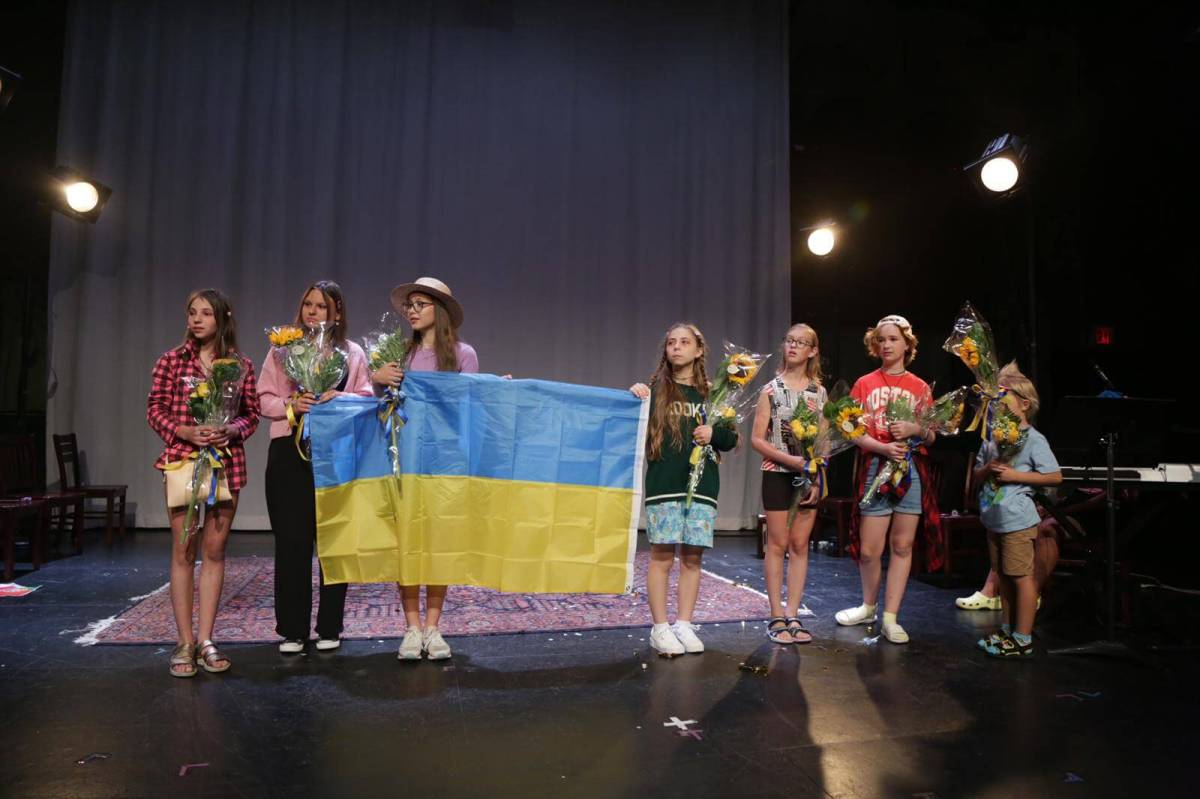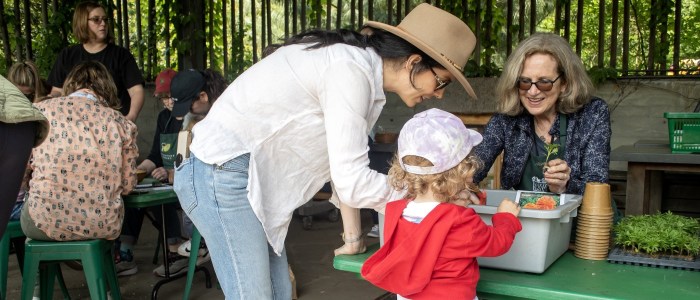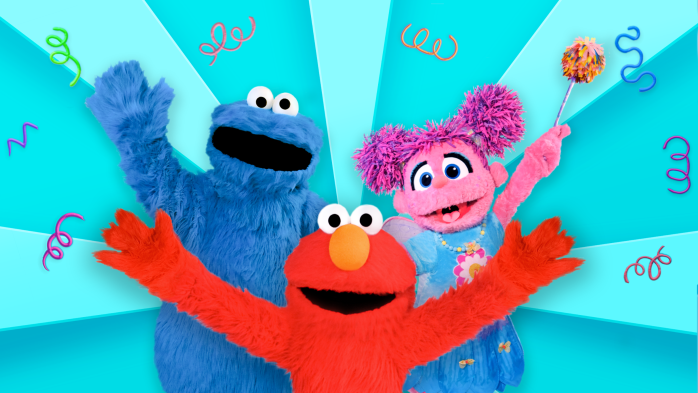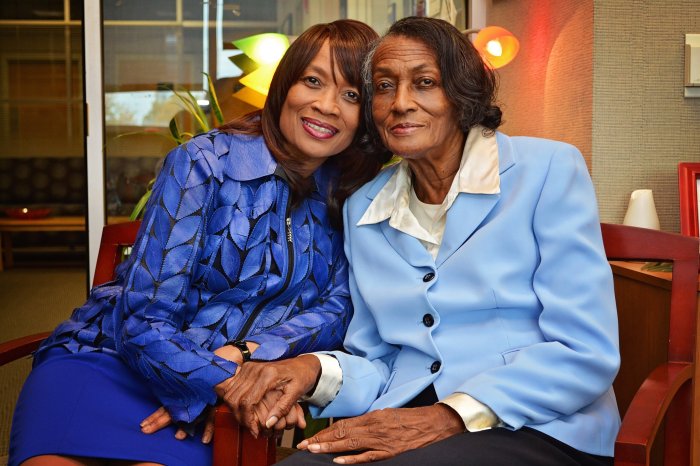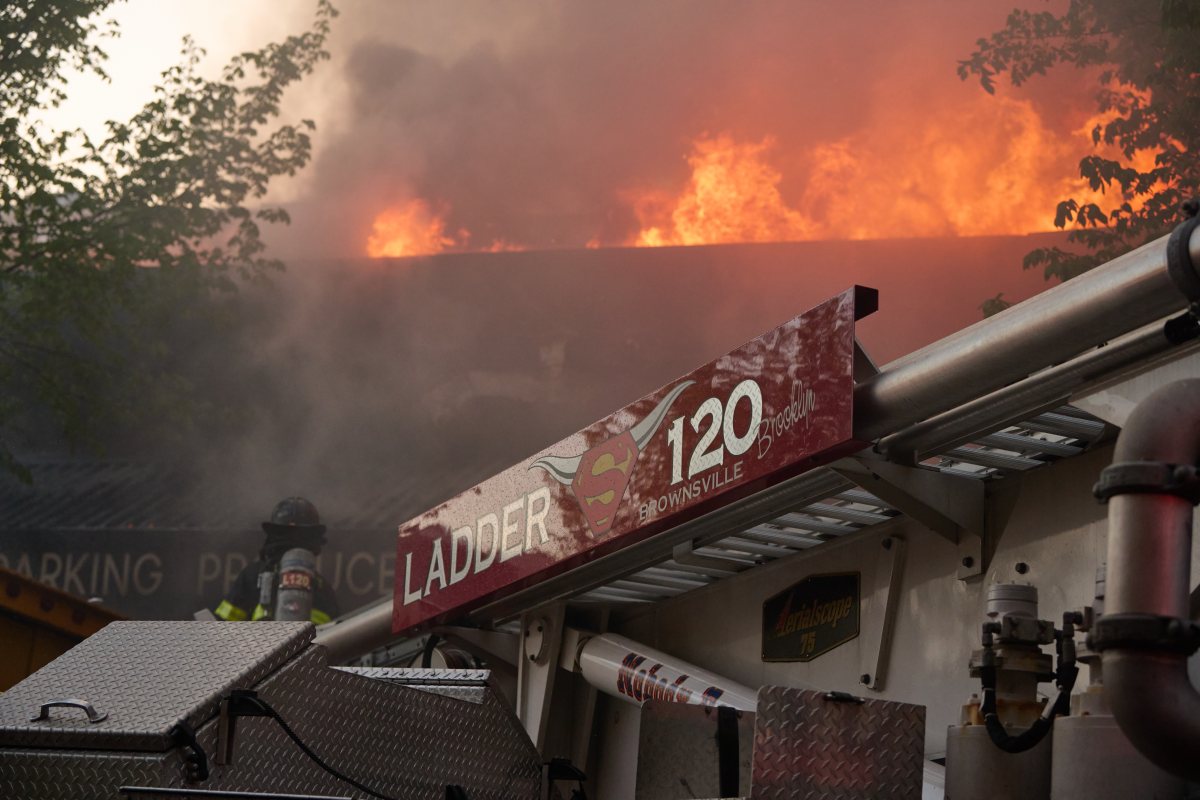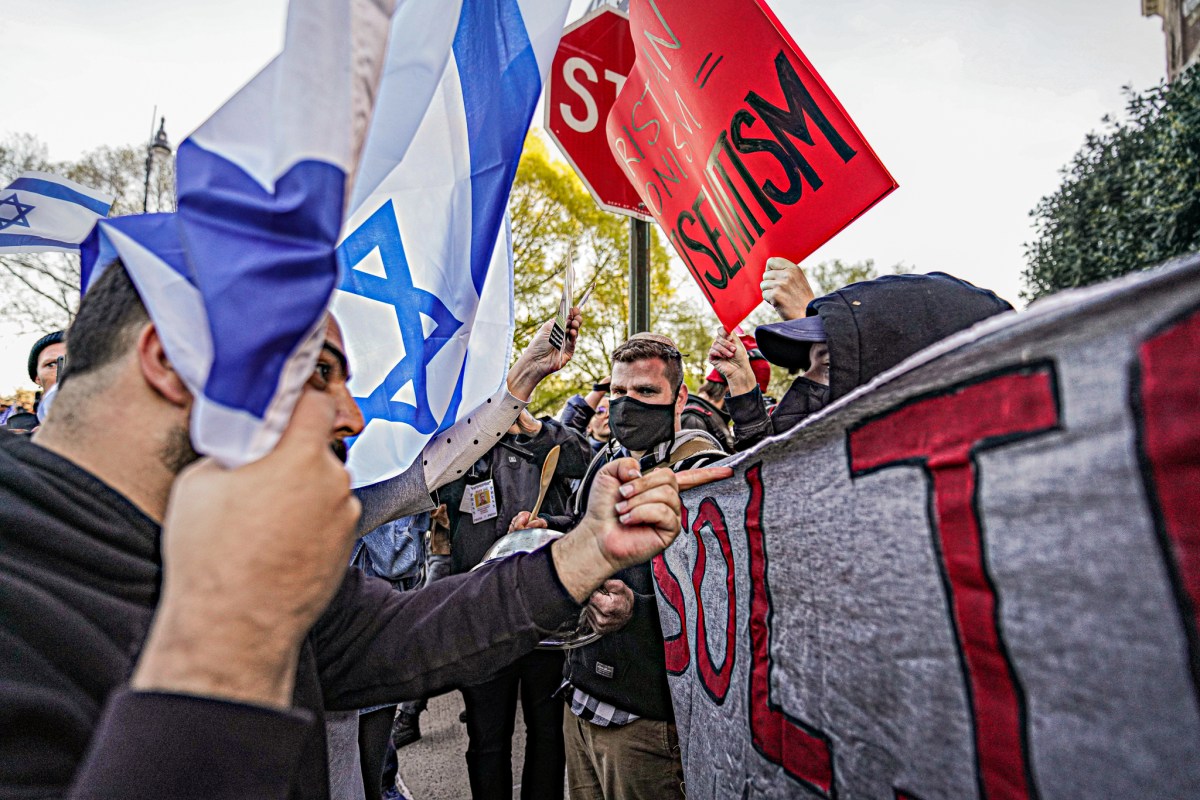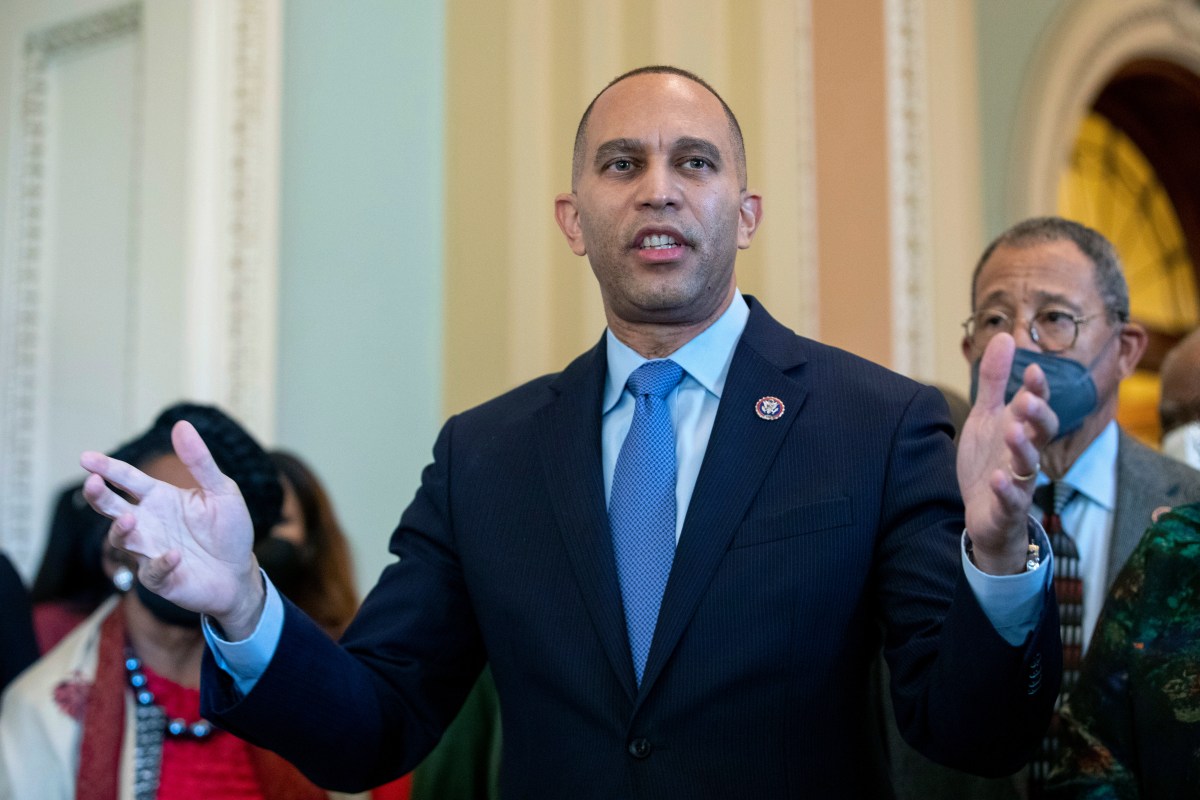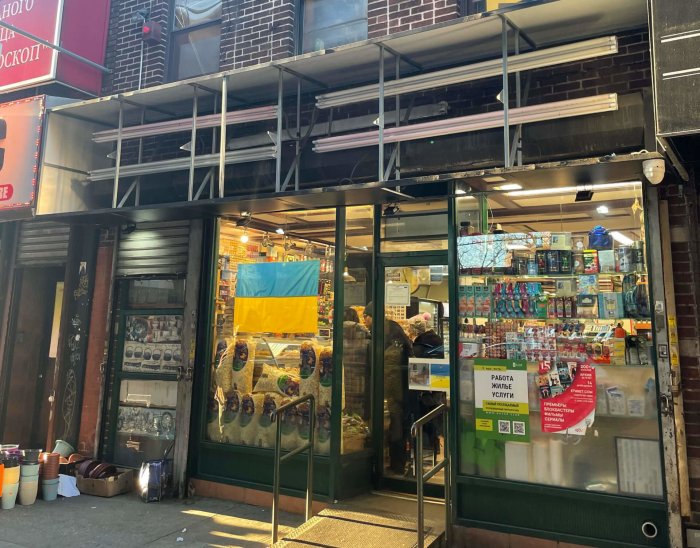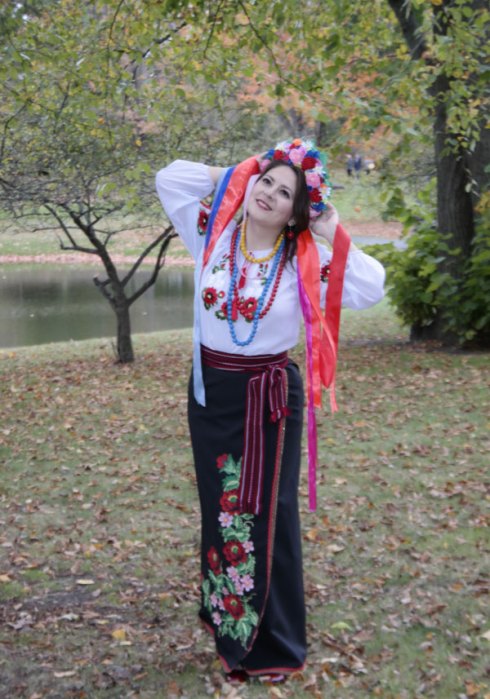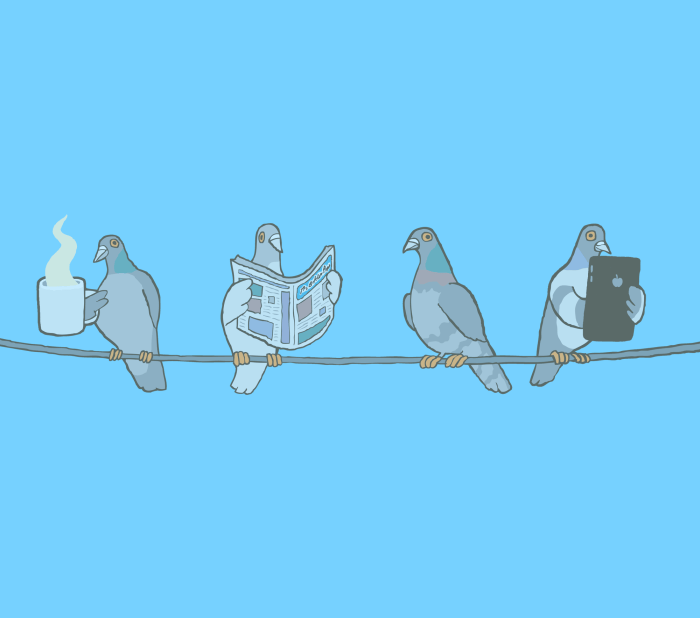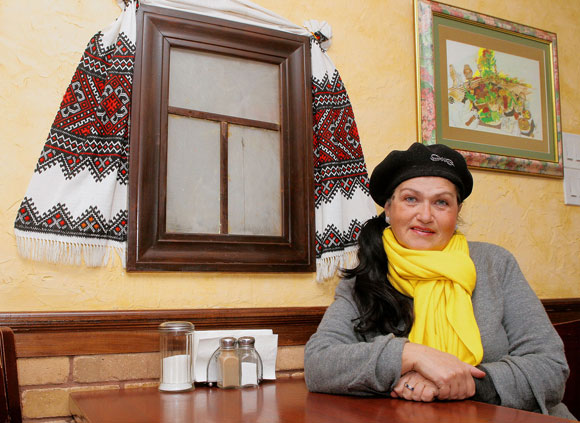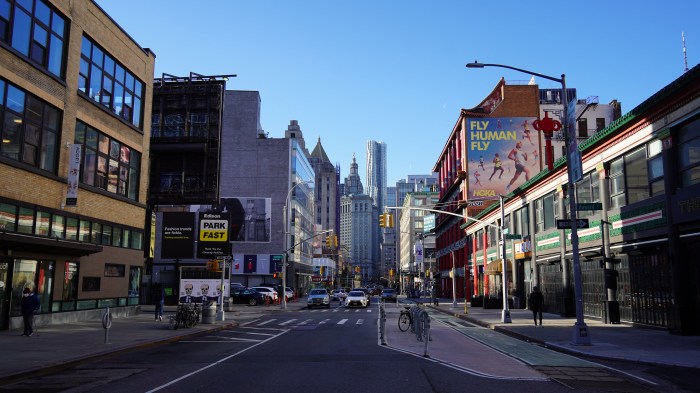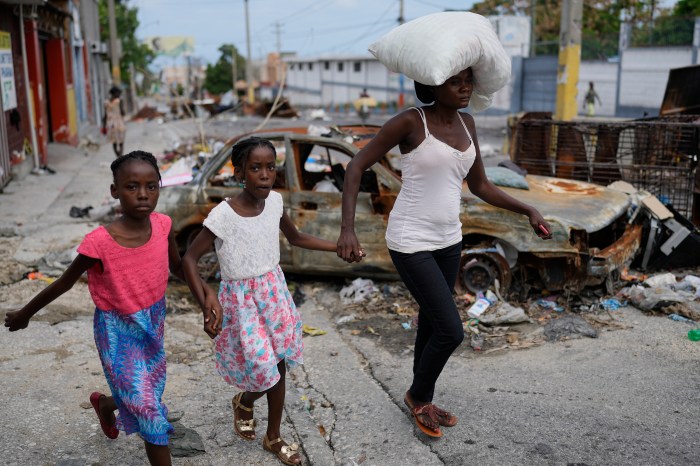On a warm Thursday afternoon two days before they opened their play “Mom on Skype” at The Irondale Center, a group of eight young Ukrainian actors were running a technical and dress rehearsal in the cavernous theater space in Fort Greene.
Or, they were supposed to be. Just about two weeks prior, the children traveled from their homes in western Ukraine to Poland, then flew to Connecticut to spend a week at a performing arts summer camp before heading to Brooklyn to prepare for and perform a two-day run of the play.
Terry Griess, the Irondale’s executive director and co-founder, wanted to make sure the troupe had plenty of time for fun on their visit. So, the night before the rehearsal, they were out late seeing “The Lion King” on Broadway and meeting the cast. Just hours beforehand, they were singing in front of the Statue of Liberty and touring the base of the statue with a park ranger.
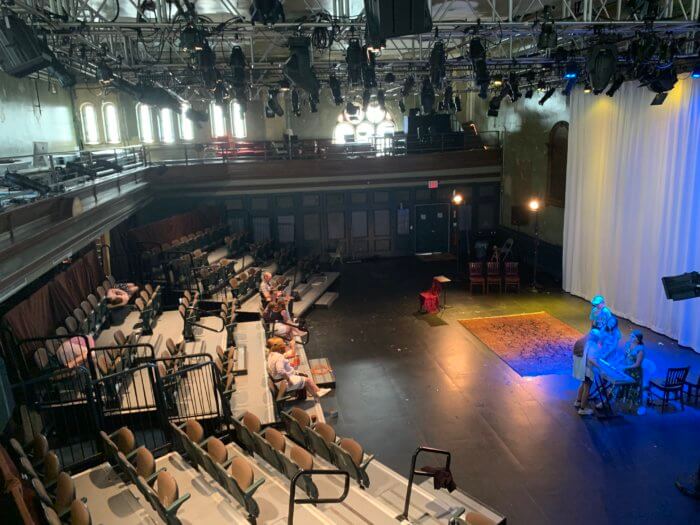
By the time rehearsal started in the cool, dimly-lit theater, the troupe — most of whom are students at the The School of Open-Minded Kids Studio Theater in Lviv — were exhausted, waiting as the tech crew ran through light cues.
A few girls gathered around the electric keyboard onstage while their peers chatted in the seats behind them. Two slept, stretched across chairs at the back of the theater. Upstairs, members of the Lafayette Avenue Presbyterian Church — which still operates below the Irondale — were making dinner for the cast.
‘It’s my dream, onstage’
“It’s my dream, onstage, when people know about me, when people look,” said 13-year-old Valeria Khozhempa, one of the actresses.
Back home, Khozhempa was cycling through hobbies — gymnastics, art, “many, many things” — trying to find something she really liked when her mother suggested she try out the theater program at her school.
“We start doing the performance, I know the text, it was so good, and then, start the war,” Khozhempa said. “And we all forgot about this performance.”
Just a week before the play was set to premiere, Russian forces invaded Ukraine. The show was quickly canceled, and life changed for the cast and crew. Like so many men in Ukraine, the show’s director, Oleg Oneshchak, was conscripted into the military.
In March, when Oneshchak called to ask Khozhempa to say they had found a suitable place to put on the play in the midst of a war — a bomb shelter in Lviv — and ask if she wanted to come back, she wasn’t sure.
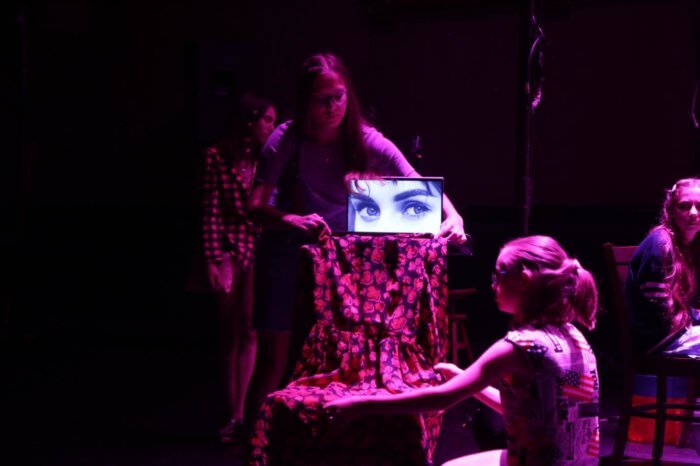
“But I think ‘I will help people, with the tickets, the money to support Ukraine,’” she said. “So I say, OK, OK. But before this performance, as I said, theater is my life.”
The performance was documented in a New York Times photo essay, which inspired Griess to contact Oneshchak and ask if he wanted to bring the play to Brooklyn.
The director agreed, and Griess, his colleagues, and the actors whipped into action. Money was raised, letters from Sen. Chuck Schumer and U.S. Rep. Hakeem Jeffries helped get the group their visas in time, and Khozhempa and her fellow actors, joined by Oneshchak’s wife, Mariia, flew to the U.S.
Oneshchak wasn’t on that flight — conscripted into duty as a soldier, he had to request from the army to leave the country before he could get a visa — but he did, days before “Mom on Skype” made its American debut.
Just before he was set to leave, tensions in Ukraine rose even higher, and his permission to travel was rescinded. Mariia stepped in to direct in his stead.
The eight young actors, including Oneshchak and Mariia’s two children, Hanna and Oleksii, were housed by local Brooklynites, welcomed by cultural institutions and theaters, and fed by restaurants like the Ukrainian mainstay Veselka.
Hanna has been acting “all of her life,” she said, starting when she was two or three years old, following in the footsteps of both her mother and father, who were both actors even before Oneshchak started directing at the school.
On her own, she wrote a patriotic Ukrainian song the group sings to close the show.
“American people must know that Ukraine has a war, and they must know that Ukraine is not the far away country, ‘Oh, we forgot it, it’s so sad,’” she said. “American people must know because Russia does not stop in Ukraine. Russia [wants] the world, the whole world.”
On the evening of the first performance at the Irondale, the performers gathered on the steps outside the theater door to sing and welcome guests — accompanied by Hannah on the accordion and Margo Kuzma on a makeshift drum made of a bucket wrapped in blue and yellow tape.
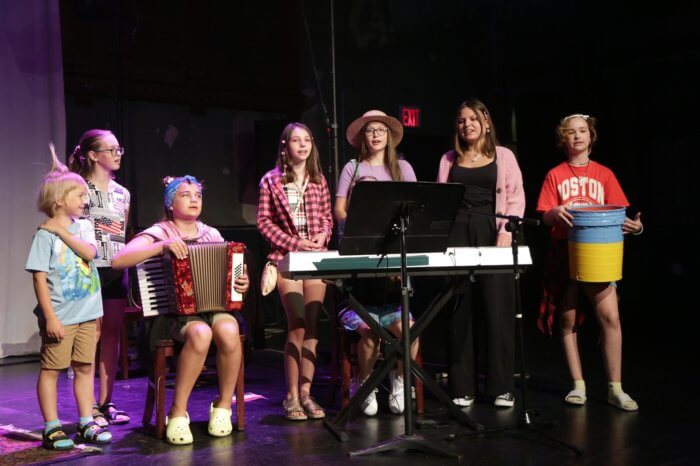
The play tells the true stories of “social orphans” in Ukraine — children who have been left without parents not because their parents have passed away, but because they have left — one girl recalls being raised by a neighbor because of her mother’s drug addiction, another recounts living with pack of kids whose parents have been forced to take jobs out of the country in order to support their families.
Those stories, which were told by Ukrainian children to a writer in Lviv, then turned into a play, have always been impactful, but became even moreso after the war began, Mariia told Brooklyn Paper.
“The Russians are destroying lots of buildings, houses, universities — they are trying to destroy material objects — but what we feel most sorry for is people’s lives,” she said through a translator. “Because everything can be rebuilt and renewed, but the people cannot be returned. This is what causes us the most pain right now.”
Asking for support for Ukrainians
After the show — which was performed entirely in Ukrainian, with English subtitles — the actors, clutching bouquets of celebratory sunflowers, were joined on stage by Ukrainian member of parliament Nataliya Pipa.
Pipa, holding a stack of photos of war-torn Ukrainian cities, pleaded with the audience not to forget about her country. Before the war, she explained, the Russian armed forces comprised around 900,000 soldiers compared to Ukraine’s fewer than 200,000. Hundreds of thousands of Ukrainian men, including Oneshchak, have been conscripted to fight in the war, Pipa explained through tears.
The politician held up a small first aid kit — the kind she said accompanies every Ukrainian soldier — and explained that each costs about $100. She urged the audience to keep supporting Ukraine monetarily and by voicing their support to the U.S. government.

On Aug. 15, the company departed Brooklyn, preparing to perform the play twice more in the U.S. — in Connecticut and Boston — before returning to Ukraine. Proceeds from each show will be donated to the Ukrainian cause.
“Support Ukraine, because we want to live in our house, with our fathers inside, in our beautiful country, Ukraine, our mother, Ukraine,” Khozhempa said. “I don’t want to wake up and think ‘Oh my gosh, I’m alive, because Russia didn’t kill me? I want to live just like a child.”
Khozhempa hopes to perform the play again in Ukraine, and maybe elsewhere in Europe, and ultimately hopes to return to the U.S. to become an award-winning actress. Hanna, eager to spread the play and her message to an American audience, encouraged people to come to the theater.
“Come to the show, it’s so cool, you will like it,” Hanna said. “And Slava Ukraini, Heroiam slava: Glory to Ukraine, and glory to heroes.”


